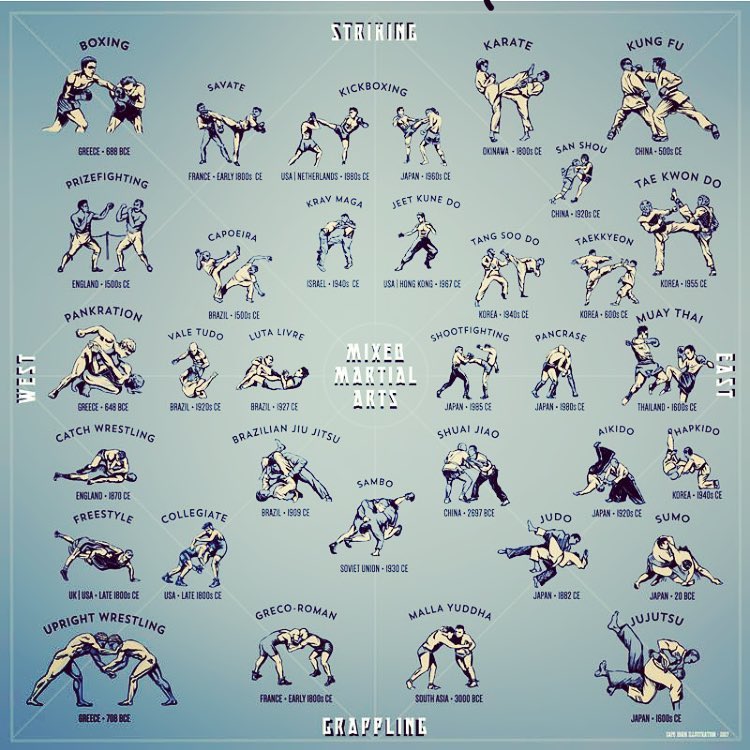Discovering The Distinctions Between Conventional Martial Arts And Contemporary Battle Sports
Discovering The Distinctions Between Conventional Martial Arts And Contemporary Battle Sports
Blog Article
Content Writer-Thuesen Snedker
When you consider martial arts, do you lean more towards the conventional practices or the contemporary fight sports? Each course supplies unique advantages and experiences, formed by their viewpoints and training techniques. Conventional martial arts stress personal growth and technique, while modern combat sports concentrate on competition and efficiency. Comprehending these distinctions can direct you in choosing the appropriate strategy for your trip. But just how do these differences show up in training and viewpoint?
The Approach and Background Behind Conventional Martial arts
While lots of people connect martial arts with physical fight, the ideology and background behind standard martial arts run much deeper. You'll find that these self-controls emphasize individual development, technique, and respect.
Originating from old techniques, typical martial arts were typically developed for Self-Defense and spiritual advancement. They embody principles such as equilibrium, consistency, and self-discipline, assisting professionals past plain fighting abilities.
As you educate, you'll not only find out strategies however likewise acquire understandings right into the culture and worths that shaped these arts. related resource site and practices, typically passed down via generations, foster a sense of neighborhood and belonging.
The Competitive Nature of Modern Combat Sports
Modern combat sporting activities have transformed the landscape of martial arts right into an extremely competitive sector, where athletes take on in a test of ability, technique, and endurance.
taekwondo classes for adults near me 'll discover that competitions are typically organized with stringent policies and regulations, guaranteeing justice and safety. These occasions draw in large target markets, sustaining the enjoyment and intensity of competitions.
Professional athletes educate carefully, not just for physical expertise but likewise for psychological strength, recognizing that every information counts in the ring. The adrenaline thrill throughout competitors is apparent, as fighters press their restrictions to declare success.
Fans appreciate the athleticism and creativity involved, making modern-day battle sports a thrilling spectacle that remains to develop and captivate lovers around the world.
Training Techniques and Strategies: A Relative Evaluation
The competitive ambience of contemporary battle sports demands cutting-edge training techniques that differ dramatically from conventional martial arts.
In contemporary training, you'll focus on specific techniques, sparring, and conditioning, frequently utilizing drills that simulate real fight scenarios. You'll see an emphasis on measurable efficiency and constant competition to examine your abilities.
On the other hand, typical martial arts focus on forms, katas, and thoughtful mentors, often emphasizing discipline and respect over competition.
click the up coming post is usually much less extreme and might include recurring method instead of real-time sparring.
While both strategies develop skill and health and fitness, contemporary combat sporting activities supply an extra vibrant and versatile training atmosphere, preparing you for instant challenges in the ring or cage.
Select the course that lines up with your goals and rate of interests.
Verdict
In selecting in between standard martial arts and modern combat sports, it truly boils down to what you value a lot of. If you're seeking individual development, self-control, and a feeling of area, typical arts might be your finest fit. However if you flourish on competition and real-time difficulties, modern-day fight sporting activities could be the method to go. Ultimately, both courses use one-of-a-kind benefits, so it's everything about straightening your training with your individual objectives and passions.
